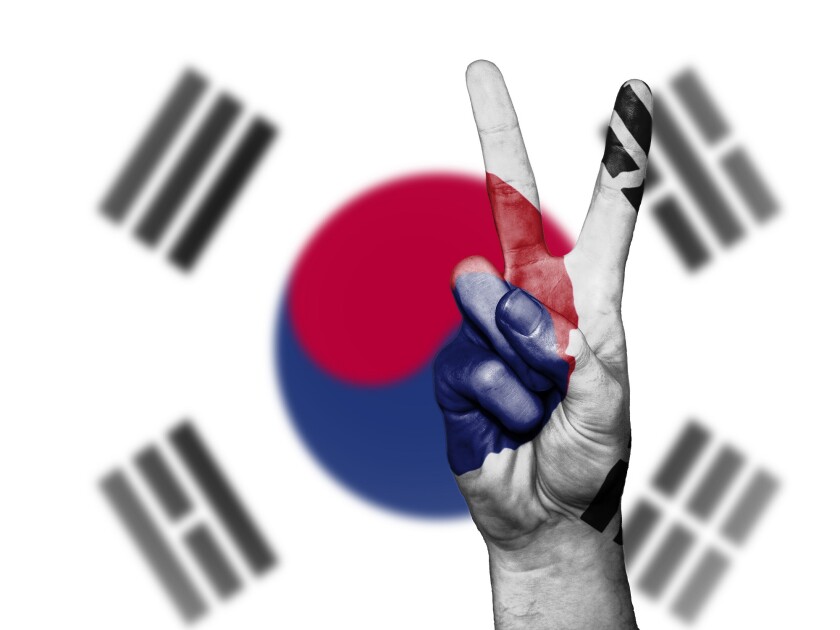Until 2022, a foreign company (with no permanent establishment in Korea) deriving Korean-sourced income which is exempt from Korean tax under a tax treaty was only required to submit an Application for Non-Taxation/Tax Exemption (a Treaty Exemption Application) and a Certificate of Residence (COR) to the income payer (i.e., the withholding agent for that income) to apply the tax treaty exemption in respect of such income. The income payer, in turn, was required to submit the documents it received to the relevant tax office.
However, an amendment to the Corporate Income Tax Act (CITA) in December 2022 and a related presidential decree in February 2023 strengthened the procedure for applying a tax treaty exemption in respect of Korean-sourced income (the Amended Procedure), particularly the requirement to submit supporting documents. The Amended Procedure applies from February 28 2023.
According to the Korean Ministry of Economy and Finance, the purpose of the amendment is to “streamline the tax treaty exemption application process”. However, it appears that the Amended Procedure also aims to provide the Korean tax authority (the National Tax Service, or NTS) access to a wider range of information about foreign companies receiving Korean-sourced income at the time Treaty Exemption Applications are submitted, such that the NTS can prepare for, and have the upper hand in, future tax audits and disputes.
For foreign companies deriving income from a Korean source, it is crucial to identify the beneficial owner of the Korean-sourced income as it relates to the issue of treaty entitlement. Historically, there was great uncertainty around the issue of beneficial owners as the Korean tax law did not specify how to identify the beneficial owner of Korean-sourced income. Accordingly, in cases where the recipient of Korean-sourced income was a foreign company – particularly a foreign company without physical or economic substance – the NTS often challenged and denied the recipient’s beneficial ownership over the income.
However, over the past few years, the Korean Supreme Court has rendered a series of decisions on the issue of beneficial ownership and consistently ruled in favour of the foreign income recipients seeking to apply tax treaty benefits (apart from in exceptional cases). The Supreme Court has made it clear that if there is no discrepancy between the legal ownership and the effective management and control of particular income, the NTS cannot deny the income recipient’s beneficial ownership by applying the substance-over-form principle simply because the investment structure results in a reduction of Korean tax liability.
Whether the recent legislative amendment was driven by these unfavourable court rulings against the NTS is unclear, but the Amended Procedure will certainly enable the NTS to conduct more thorough and targeted investigations on foreign companies receiving Korean-sourced income and their beneficial owner status.
1. What documents do foreign companies need to submit under the Amended Procedure?
Under the Amended Procedure, a foreign company seeking to apply a tax treaty exemption in respect of its tax-exempt Korean-sourced income is required to submit to the income payer a Treaty Exemption Application and the following documents to substantiate that it is the beneficial owner of the relevant Korean-sourced income (the supporting documents).
General rule
If the amount of Korean tax exempted under a tax treaty is KRW 1 billion (approximately USD 750,000) or more (including cases where the total amount of Korean tax exempted in the past 12 months is KRW 1 billion or more) :
A COR;
The names and addresses of the members of the board of directors;
Information about the shareholders, including their shareholding status (if the number of shareholders exceeds 100, this can be substituted with a statement showing the number of shareholders and total investment amount for each country);
Audit reports for the past three years; and
(For Korean-sourced royalties) Documents confirming the licensor (the legal owner), licensee, place of registration, etc. of the relevant rights, such as a copy of the licence agreement.
In all other cases: a COR only.
Exception
Despite the general rule outlined above, if (i) the relevant Korean-sourced income is received via an overseas investment vehicle (OIV) (including cases where the OIV receiving Korean-sourced income is viewed as the beneficial owner of that income) or (ii) the beneficial owner of the relevant Korean-sourced income is a foreign government entity, a qualified state-owned company, etc. in a treaty partner country, the only supporting document that needs to be submitted with a Treaty Exemption Application is a COR.
2. NTS and income payers can request additional information/documents
Even before the recent amendment, income payers could, in practice, request additional information or documents in relation to Treaty Exemption Applications submitted by foreign companies. However, the Amended Procedure explicitly sets out the income payers’ and NTS’ right to request document supplementation with respect to Treaty Exemption Applications.
Under the Amended Procedure, an income payer can request additional information or documents if there are omissions or incomplete items in a Treaty Exemption Application received from a foreign company. Furthermore, upon receipt of a Treaty Exemption Application, the NTS can also request the income payer to submit supporting documents, and may assess withholding tax against the income payer if the NTS determines that the treaty exemption requirements are not satisfied or the content of the Treaty Exemption Application is different from the facts .
3. Practical implications for foreign companies receiving tax-exempt Korean-sourced income
Foreign companies deriving tax-exempt Korean-sourced income and planning to apply a tax treaty exemption in respect of such income should consider the following.
Review by the NTS
Going forward, the NTS is expected to conduct a thorough review of Treaty Exemption Applications and supporting documents submitted by income payers, and check whether the relevant treaty exemption requirements have been satisfied.
The Amended Procedure may be viewed as imposing a considerable burden on foreign companies deriving tax-exempt Korean-sourced income as the NTS is expected to actively request document supplementation and issue amended tax assessments in relation to Treaty Exemption Applications filed for tax-exempt Korean-sourced income.
Potential issue of a ‘duplicate tax audit’
Before the recent amendment, income payers simply submitted the Treaty Exemption Applications collected from foreign corporations to the NTS, and the NTS marked the application forms with their “received” stamp.
On the other hand, under the Amended Procedure, the NTS essentially assesses whether the relevant foreign company has satisfied the treaty exemption requirements at the time the NTS receives the application form and supporting documents from the income payer. However, Korea does not operate a pre-clearance regime like some European countries; even after the NTS has completed its review of a Treaty Exemption Application, the NTS will not issue a tax clearance certificate to the income payer (or the foreign company) to confirm that the application has been approved and the foreign company can apply the tax treaty exemption.
Because the review outcome is not formally notified to the income payer (or the foreign company), the Treaty Exemption Application is still open to challenge by the NTS even though the NTS has already reviewed and processed (i.e., effectively approved) the application.
As a result, if and when the NTS conducts a tax audit on the income payer after some time passes, the NTS may attempt to challenge the same Treaty Exemption Application again and assess withholding tax against the income payer. This gives rise to the question of whether such subsequent review and challenge by the NTS constitutes a ‘duplicate tax audit’ of the same item of income for the same type of tax – withholding tax on Korean-sourced income received by a foreign company – which is prohibited under the Korean tax law.
The Korean tax law defines a tax audit as an administrative investigation in which the NTS asks questions to a taxpayer, or inspects or examines documents of a taxpayer, to determine or amend the tax base and tax amount of that taxpayer. Therefore, where the NTS conducts an investigation by actively exercising its right to ask questions or inspect documents (the ‘right of enquiry’), such investigation qualifies as a tax audit. Whether a set of investigative activities undertaken by the NTS should be considered to constitute a tax audit is a question of fact and degree to be determined in light of all the relevant circumstances of each case.
In respect of a Treaty Exemption Application, the NTS may be viewed as actively exercising its right of enquiry if it actively exercises its right to request document supplementation by demanding specific information or documents or making targeted queries, such as asking the income payer to provide information or documents that are not explicitly listed as a mandatory supporting document in the tax law (for example, information or documents relating to the ultimate investors or upper-level investors in the ownership structure).
Therefore, if the NTS processes (i.e., effectively approves) a Treaty Exemption Application after making such specific demand at the time it receives the application from the income payer, the NTS may be deemed to have conducted and closed a tax audit of that Treaty Exemption Application. In such case, it is arguable that a subsequent attempt by the NTS to re-examine the same Treaty Exemption Application and issue a withholding tax assessment as part of a tax audit on the income payer constitutes a duplicate tax audit of the Treaty Exemption Application and should not be allowed.
On the other hand, if the NTS processes (i.e., effectively approves) a Treaty Exemption Application after making a general information or document request, such as asking the income payer a few simple questions, the NTS may not be considered to have actively exercised its right to request document supplementation; thus, no active exercise of the NTS’ right of enquiry and no tax audit of the Treaty Exemption Application. Accordingly, even if the NTS attempts to revisit the Treaty Exemption Application and issue a withholding tax assessment after some time passes (at the time of a tax audit on the income payer), it may be difficult to argue that such investigation constitutes a duplicate tax audit of that Treaty Exemption Application and is invalid.
In general, once the NTS has reviewed a particular Treaty Exemption Application and related supporting documents, the NTS is likely to close its investigation and not revisit that Treaty Exemption Application. Nonetheless, foreign companies receiving tax-exempt Korean-sourced income should still be mindful of the potential issue of a duplicate tax audit and keep a record of all correspondence exchanged with income payers and the NTS (including the requests received and responses provided).
Increased information/document requests from income payers
To prepare for potential document supplementation requests or enquiries from the NTS, income payers may ask foreign companies receiving tax-exempt Korean-sourced income to provide extra information and documents, such as the certificate of incorporation, details of their business, and information about the ultimate parent company or upper-level investors, in addition to the supporting documents explicitly listed in the tax law. Yulchon has observed an increase in such information and document requests from income payers in the past few months.
Furthermore, income payers may be reluctant to accept Treaty Exemption Applications submitted by foreign companies unless income payers have comfort that the supporting documents submitted with the application are sufficient to substantiate the beneficial owner of the relevant income and fulfil the applicable treaty exemption requirements. In some cases, if income payers are not satisfied with the supporting documents they received, income payers may ask foreign companies to first pay tax and subsequently lodge a tax refund application in Korea, which would inevitably be a costly and time-consuming process.
To avoid unnecessary disputes with income payers and to save time and money, foreign companies deriving tax-exempt Korean-sourced income should consult with a tax adviser to:
Carefully draft and review the scope of information and documents to be provided in the written contract with the income payer;
Carefully prepare the supporting documents when submitting a Treaty Exemption Application for tax-exempt Korean-sourced income; and
Carefully respond to any information or document supplementation requests from income payers and the NTS.
Less administrative burden for OIVs
Despite the recent legislative change, the supporting document requirement remains the same for tax-exempt Korean-sourced income received via OIVs. In other words, the requirement to submit supporting documents is much simpler if the foreign company receiving tax-exempt Korean-sourced income is an OIV.
An OIV refers to a vehicle established outside Korea which engages in the investment activities of acquiring, disposing of, or managing by other means, investment assets with value, with money or money equivalents raised through solicitation for investment, and distributing the returns from such investment to investors. An OIV may be viewed as a vehicle similar to a collective investment vehicle, which is defined in the Korean Financial Investment Services and Capital Markets Act as generally referring to an investment that pools money or money equivalents from two or more people for investment purposes. However, a special purpose vehicle (SPV) owned by one investor may also be treated as an OIV for Korean tax purposes due to the broad definition of the term.
Where an OIV receives tax-exempt Korean-sourced income, the beneficial owner of the income may be the ultimate investors of the OIV or the OIV itself if it is deemed to be the beneficial owner under the special deemed beneficial owner rules introduced in 2020.
In the former case, the OIV has to:
Collect Treaty Exemption Applications and CORs from the ultimate investors;
Prepare a Report of OIV and Schedule of Beneficial Owners (an OIV Report) based on the information collected from the ultimate investors; and
Submit the Treaty Exemption Applications and CORs collected from the ultimate investors and the OIV Report to the income payer.
In the latter case, the OIV simply has to submit a Treaty Exemption Application and its own COR to the income payer.
Hence, the burden of having to submit additional information and documents is substantially less for OIVs. This may incentivise foreign companies deriving tax-exempt Korean-sourced income to take the position that they should be treated as an OIV for Korean tax purposes at the time they submit Treaty Exemption Applications to income payers or to set up a SPV that can be treated as an OIV for Korean tax purposes (for example, a Singapore platform company which is treated as a fund pursuant to Singapore’s Enhanced-Tier Fund Tax Incentive Scheme) and receive income through that SPV.
While the OIV treatment is still open to challenge by the NTS, such utilisation of an OIV would reduce the scope of additional information and documents foreign companies need to submit to income payers to apply a tax treaty exemption in respect of tax-exempt Korean-sourced income.
4. Additional consideration
Lastly, the CITA provisions governing the procedure for applying a reduced tax rate under a tax treaty have also been amended such that foreign companies need to submit documents substantiating their beneficial ownership over the relevant Korean-sourced income. However, as the government has not yet changed the related provisions in the CITA presidential decree, foreign companies can still simply submit an Application for Entitlement to a Reduced Tax Rate with no additional supporting document, which is the same as before.
The Korean Ministry of Economy and Finance has unofficially confirmed that it does not intend to amend the provisions in the CITA presidential decree for the time being, but foreign companies should monitor future developments closely.















